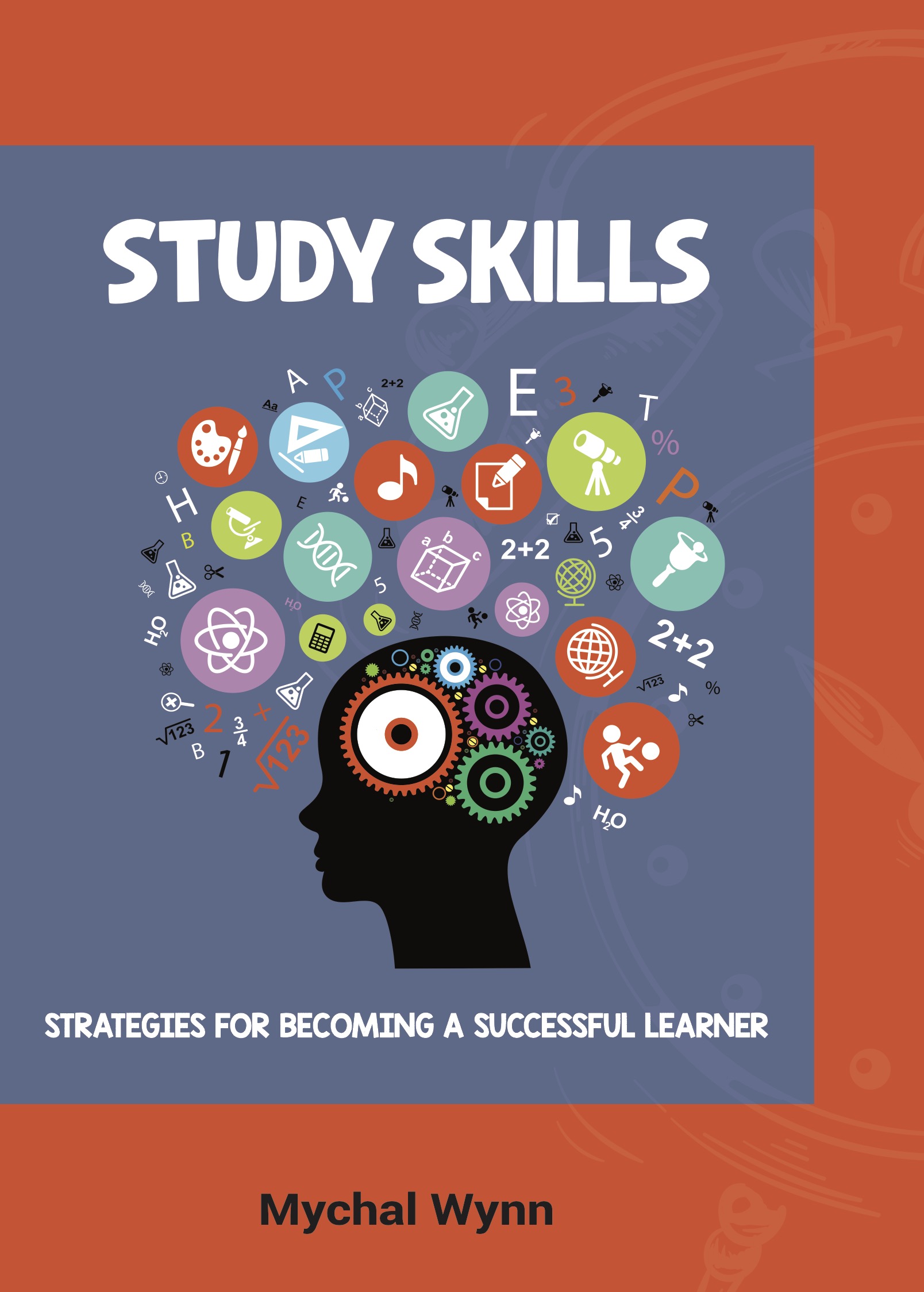Mastering Study Skills: Unlocking Your Full Academic Potential
Study skills are essential tools that every student needs in order to excel academically. Whether you’re in high school, college, or pursuing advanced degrees, having the right study techniques can make all the difference between struggling and succeeding. This article explores the best study skills, strategies, and methods that will help you improve your learning, retain information more effectively, and achieve academic success.

What Are Study Skills?
Study skills refer to the techniques and strategies used to learn more effectively. These skills are essential for organizing your learning, managing your time, and understanding the material better. The right study habits can help you absorb information, improve your focus, and perform better on exams and assignments.
Study skills are not just about memorizing facts; they are about developing the ability to understand, process, and apply knowledge. By using the right study techniques, you can make your study sessions more efficient and productive.
Importance of Effective Study Skills
Developing strong study skills is vital for academic success. Here’s why:
-
Better Retention: Effective study techniques ensure that you remember and understand the material.
-
Time Management: By mastering study skills, you can manage your time better and avoid last-minute cramming.
-
Reduced Stress: Knowing how to study efficiently reduces anxiety around exams and deadlines.
-
Academic Success: Strong study habits lead to improved grades, better understanding of subjects, and overall success.
By honing these skills, students not only perform well in exams but also retain valuable knowledge for their future careers.
Time Management: The Foundation of Study Success
One of the most crucial aspects of study skills is time management. Without a clear plan, it’s easy to feel overwhelmed by assignments, exams, and deadlines. Here’s how to manage your time effectively:
1. Create a Study Schedule
A study schedule is your roadmap to success. It helps you organize your time and ensures that you allocate enough time for each subject. Whether you prefer a weekly or daily schedule, consistency is key.
-
Use a planner or digital calendar: These tools help you set clear deadlines and reminders.
-
Set priorities: Focus on the most challenging or urgent tasks first.
2. Break Tasks into Smaller Steps
Tackling a large project or assignment can feel daunting. Break it down into smaller, manageable tasks. This makes the process less overwhelming and more achievable.
-
Use the Pomodoro Technique: Study for 25 minutes, then take a 5-minute break. This increases focus and reduces burnout.
-
Set mini-goals: Achieving small goals builds momentum and helps you stay motivated.
Active Learning: Engage with the Material
Simply reading through your notes or textbooks is not enough. Active learning is a method where you engage with the material in a way that promotes understanding and retention.
1. Summarize and Paraphrase
After reading a section of your textbook or lecture notes, try summarizing the material in your own words. This helps solidify your understanding.
-
Write summaries: Create concise notes that highlight key concepts and ideas.
-
Teach someone else: Teaching the material to a peer or even to yourself forces you to process the information deeply.
2. Use Visual Aids
Visual learning aids such as mind maps, charts, and diagrams can help organize information in a way that’s easier to remember. Many students find that visualizing concepts helps with recall during exams.
-
Mind maps: These are excellent for brainstorming and organizing complex topics.
-
Flashcards: Use flashcards for quick reviews and self-testing.

Study Environment: Create the Right Space
A quiet, organized, and comfortable study environment is key to maximizing focus and productivity. Here’s how to set up your ideal study space:
1. Choose a Quiet, Distraction-Free Area
Find a spot where you can focus without distractions, such as a library, study room, or a designated desk at home. Avoid spaces where you’ll be tempted by social media, TV, or other distractions.
2. Organize Your Materials
A cluttered desk can be a major source of stress. Keep your study area organized with all necessary materials within reach, such as textbooks, notebooks, pens, and a computer.
-
Use storage solutions: File folders, notebooks, or digital tools like note-taking apps can help keep your materials organized.
-
Proper lighting: Make sure your study area is well-lit to prevent eye strain.
3. Comfortable Seating
Long study sessions require a comfortable chair and table. Proper ergonomics can help prevent discomfort and fatigue.
How to Take Effective Notes
Taking effective notes is one of the most important study skills. Good notes help you remember and understand the material better, and they serve as valuable resources for review.
1. The Cornell Method
The Cornell method involves dividing your page into three sections: one for notes, one for key points, and one for summaries. This format helps you organize the information and makes reviewing easier.
-
Main notes: Write down the lecture content or reading material.
-
Key points: Highlight key ideas, important terms, and questions.
-
Summary: After class, write a brief summary of what you learned.
2. Use Abbreviations and Symbols
Develop your own shorthand to speed up note-taking and ensure that you capture key ideas quickly.
-
Use symbols: Instead of writing out full words, use symbols like arrows or stars to highlight important points.
-
Abbreviate common terms: Shorten frequently used words, such as “exam” to “xam” or “important” to “imp.”
Memorization Techniques
Memorization is an essential part of studying, but it can be challenging. Here are some techniques that make memorization easier:
1. Use Mnemonics
Mnemonics are memory aids that help you recall information. They can be acronyms, rhymes, or visual images that make concepts easier to remember.
-
Acronyms: Create acronyms from the first letter of each word or concept you need to remember.
-
Rhymes: Use catchy phrases or songs to help memorize lists or key points.
2. Spaced Repetition
Spaced repetition involves reviewing material at increasing intervals over time. This technique has been shown to improve long-term retention and prevent forgetting.
-
Use apps: Tools like Anki or Quizlet can help you create spaced repetition flashcards for quick review.
-
Review regularly: Schedule periodic reviews to reinforce your learning and keep the information fresh.

How to Stay Motivated
Staying motivated throughout the study process can be difficult, but with the right strategies, you can maintain focus and drive.
1. Set Realistic Goals
Break down larger academic goals into smaller, achievable steps. This gives you a sense of progress and makes it easier to stay on track.
-
Use SMART goals: Specific, Measurable, Achievable, Relevant, and Time-bound goals are more effective and realistic.
-
Reward yourself: Celebrate small wins with a reward, such as a break or a treat.
2. Stay Positive
A positive mindset can help you overcome obstacles and stay motivated during difficult study sessions. Practice self-affirmation and focus on your progress rather than on the challenges.
FAQs About Study Skills
1. What is the best study method?
There is no one-size-fits-all approach to studying. However, combining time management, active learning, and effective note-taking is generally considered the most efficient way to study.
2. How can I improve my concentration while studying?
To improve concentration, eliminate distractions, create a designated study space, and practice techniques like the Pomodoro Method to keep your focus sharp.
3. How can I memorize large amounts of information quickly?
Use mnemonics, spaced repetition, and active recall techniques to memorize large volumes of information more efficiently.
4. What if I get distracted easily?
Try breaking your study sessions into smaller chunks and using techniques like the Pomodoro Method. Stay away from distractions and set clear goals to stay focused.
Conclusion
Mastering study skills is the key to academic success. By incorporating effective time management, active learning strategies, and better note-taking, students can maximize their potential and reduce the stress of studying. Whether you’re in school or pursuing higher education, the right study techniques can help you retain information, stay organized, and ultimately succeed in your academic journey.
The power of great study skills is in your hands—start implementing these strategies today to unlock your full potential.








